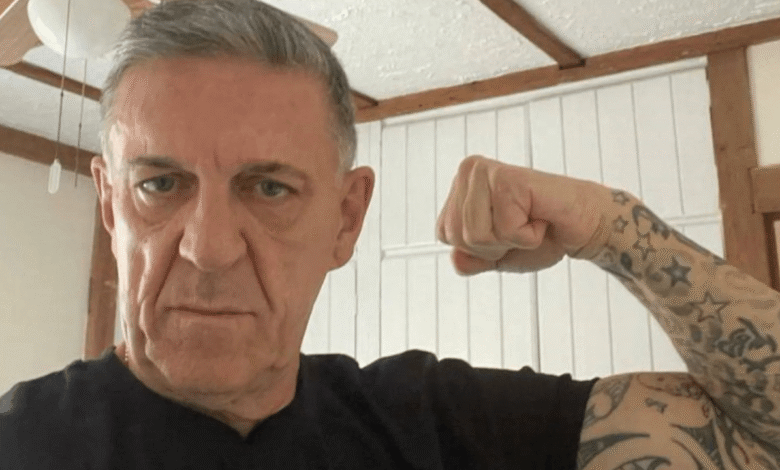Carlton Leach: The Rise, Fall, and Reinvention of Britain’s Infamous Footsoldier

British underworld history has captured the public’s imagination, as has Carlton Leach. Known as The Footsoldier, Leach’s life is a dramatic tale of survival — from the terraces of football hooliganism to the dark corridors of organized crime, and finally to redemption through authorship, film, and self-reflection. In this article, we’ll explore who Carlton Leach is, his background, criminal connections, the notorious Rettendon murders, his role in Rise of the Footsoldier, and how he transformed his turbulent past into a story of change and awareness.
Early Life and Roots of Carlton Leach
Carlton Leach was born on March 12, 1959, in Canning Town, East London — a working-class neighborhood that shaped his grit, loyalty, and fighting spirit. Growing up in post-industrial East London meant facing economic hardship, limited opportunities, and exposure to street culture from a young age.
A passionate West Ham United supporter, Leach found his first identity among the football crowds. During the 1970s and 1980s, when football hooliganism swept across England, he became a prominent member of the Inter City Firm (ICF) — a notorious West Ham group known for orchestrating violent clashes with rival firms.
For Leach, football was more than a sport — it was a sense of belonging. The camaraderie, violence, and adrenaline that came with being part of the ICF gave him a feeling of power and respect that he struggled to find elsewhere. As Leach later admitted, “the firm was my drug.”
From Football Terraces to Nightclub Doors
As the football violence scene declined under police crackdowns in the late 1980s, Carlton Leach transitioned from stadiums to the nightclub scene. His imposing physique and reputation for toughness made him a sought-after bouncer and security enforcer in East London and Essex.
This was the dawn of the rave and ecstasy era, where booming nightclubs, drug dealing, and underground parties became the new frontier of street power. Leach’s security operations naturally overlapped with criminal enterprises, and soon he was mingling with key figures in Essex’s emerging underworld.
It was during this period that Leach formed ties with Tony Tucker, Pat Tate, and Craig Rolfe — names that would later be etched into British crime history.
Carlton Leach and the Essex Underworld
By the early 1990s, Leach was deeply enmeshed in the Essex drug scene, which was rapidly expanding thanks to the lucrative rave culture. The trio of Tucker, Tate, and Rolfe, collectively known as the Essex Boys, were involved in large-scale ecstasy distribution and nightclub rackets.
Leach operated on the periphery of this group, often as a friend, business associate, and security figure. His role wasn’t necessarily as a drug dealer, but as someone who facilitated operations, offered protection, and maintained order through intimidation when necessary.
However, the hedonistic lifestyle of easy money, violence, and drugs was unsustainable. Rivalries grew, debts mounted, and paranoia spread through Essex’s criminal circles — culminating in one of Britain’s most notorious underworld slayings.
The Rettendon Murders and a Turning Point
On December 6, 1995, the bodies of Tony Tucker, Pat Tate, and Craig Rolfe were found in a Range Rover on a remote farm track in Rettendon, Essex. They had been shot execution-style, a shocking event that became known as the Rettendon murders or the Range Rover murders.
The killings sent shockwaves through Britain’s criminal underworld. For Carlton Leach, it was a moment of reckoning. Three of his closest friends and associates were brutally murdered — a stark reminder of the high price of the life he had been living.
Leach later said the murders were a “wake-up call,” forcing him to reassess his priorities and distance himself from the violent underworld. He described the trauma and sense of loss in interviews and in his later writings, acknowledging that it was the moment his “old life ended.”
Carlton Leach: From Criminal Infamy to Author
After withdrawing from organized crime, Carlton Leach turned his story into words. In 2003, he published his autobiography, “Muscle”, a brutally honest account of his journey from football hooligan to nightclub enforcer to underworld figure.
The book offered readers a raw look into the mindset of a man shaped by violence and loyalty. It also served as a cautionary tale — emphasizing how easily young men from tough backgrounds can be drawn into criminal subcultures that promise power but deliver destruction.
Leach’s writing style was direct and unapologetic, capturing the essence of life on the edge. “Muscle” quickly gained attention and became a bestseller in true-crime circles, praised for its authenticity and insight into Britain’s evolution from hooliganism to gangsterism.
Rise of the Footsoldier: Bringing Carlton Leach to the Big Screen
In 2007, Leach’s life story was dramatized in the British crime film “Rise of the Footsoldier.” Directed by Julian Gilbey, the movie starred Ricci Harnett as Carlton Leach. It chronicled his rise through the ranks of football violence to his involvement in the criminal underworld of Essex.
The film’s gritty realism and violent depiction of London’s gang culture struck a chord with audiences, turning it into a cult classic. It spawned multiple sequels and spin-offs — though most of the later films focused less on Leach and more on the fictionalized Essex Boys universe.
While the movie cemented Carlton Leach as a pop-culture figure, it also drew controversy. Critics argued it glamorized crime and violence, while Leach himself expressed disappointment with how his life was portrayed in later installments that veered from the truth of his story.
Nevertheless, the original film remains one of the most iconic British gangster movies of the 2000s and solidified Leach’s status as a key name in modern British underworld mythology.
Later Life and Personal Transformation
Today, Carlton Leach is far removed from his violent past. Having left behind the criminal lifestyle decades ago, he has focused on personal growth, motivational speaking, and entrepreneurship.
He regularly gives interviews, appears at events, and shares insights about his journey — warning younger generations against the false allure of street power. Leach also remains a passionate supporter of West Ham United, the club that shaped his early years.
Leach published another book, “Carlton: The Final Say”, which offers an updated reflection on his life, legacy, and lessons learned. In it, he speaks candidly about loyalty, betrayal, and the need for self-respect beyond violence.
He has also become active on social media, particularly X (formerly Twitter), where he interacts with fans and shares reflections on discipline, masculinity, and redemption. Despite his tough persona, Leach’s later image is more philosophical — a man who has seen the worst of life and chosen to move beyond it.
Carlton Leach in Popular Culture
Over the years, Carlton Leach has become a symbol of Britain’s late-20th-century criminal culture — a man whose life bridges the worlds of football hooliganism, gangland violence, and personal reform.
His story continues to inspire documentaries, podcasts, and social media discussions exploring why men like him were drawn to violence and how society can prevent similar cycles.
TV programs and YouTube interviews featuring Leach often highlight his authenticity. Unlike many self-styled “gangster” figures, Leach does not glorify his past; instead, he uses it to illustrate how easily poor choices can spiral into tragedy.
Controversies Surrounding Carlton Leach
Despite his efforts to distance himself from his past, Carlton Leach remains a controversial figure. Some view him as a reformed man telling his truth; others see him as a participant in a criminal culture that caused harm.
The Rise of the Footsoldier series also reignited debates about whether such portrayals glorify violence or simply reflect the grim reality of working-class Britain in the 1980s and 1990s. Leach himself has publicly criticized the producers of later sequels for exploiting his name while deviating from the facts.
Yet, controversy has never been far from Leach — even in his legitimate pursuits, his name still carries the shadow of his past. And perhaps that’s what makes him such a compelling figure: he is both a cautionary tale and a symbol of survival.
Carlton Leach’s Philosophy and Legacy
In his interviews, Carlton Leach often talks about loyalty, respect, and discipline — qualities he values even though the violence of his environment once twisted them. He emphasizes the importance of self-control and understanding consequences, lessons learned through years of challenging experience.
Leach’s story resonates because it is not one of glamor, but of transformation. From the chaos of hooliganism and crime, he emerged as someone seeking peace, family stability, and purpose. His resilience has inspired documentaries, podcasts, and books exploring the psychology of violence and redemption.
Key Lessons from Carlton Leach’s Life
- Violence is a dead end. Leach’s transition from enforcer to author shows that real strength lies in self-control and change.
- Loyalty can be dangerous. His unwavering loyalty to friends in the Essex scene brought him close to death — proof that unquestioning loyalty can destroy.
- Redemption is possible. Despite his past, Leach rebuilt his life, showing that personal transformation can begin at any age.
- Tell your story before others tell it for you. By writing Muscle, Leach took control of his narrative, preventing others from distorting his truth.
Conclusion: The Enduring Legacy of Carlton Leach
Carlton Leach remains one of Britain’s most fascinating underworld figures — a man whose life encapsulates the extremes of violence, loyalty, and survival. From the terraces of Upton Park to the blood-stained lanes of Rettendon, his journey reveals the seductive and destructive nature of street power.
You May Also Read: Stylish Ways to Wear a Men’s Bowler Hat with Modern Outfits




